Science prize as career stepping stone
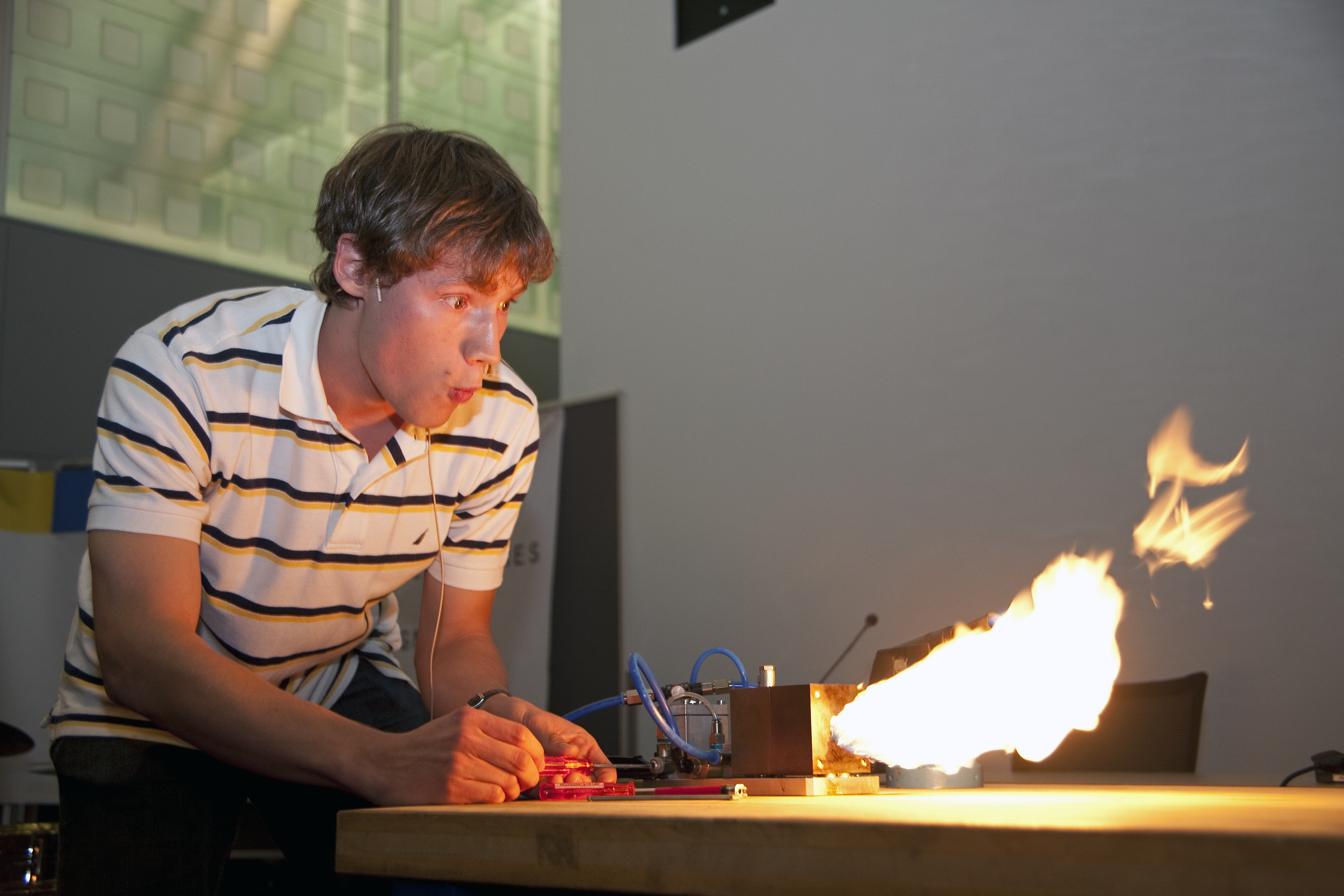
Submarine surveillance and a cocktail robot. The crème de la crème of young scientists hope inventions like these will score them the kind of success that helped launch the careers of top Swiss academics. But showcasing their talents elsewhere has become harder.
Elsa Tschopp is beaming. A shy 18-year-old from canton Zurich, her mini submarine has been awarded a special prize at the recent Schweizer Jugend Forscht Foundation’s 48th national competition. She also has won an all-paid week-long trip to Norway to the European Space Camp.
Not just a gimmick, the submarine is fitted with a camera to measure and evaluate lake pollution.
“It’s incredible,” says the student from Limmattal cantonal school in Birmensdorf. “Two years ago I saw my brother taking part and I thought ‘why not?’ and here I am. When I started out with my submarine it was just a high school project.”
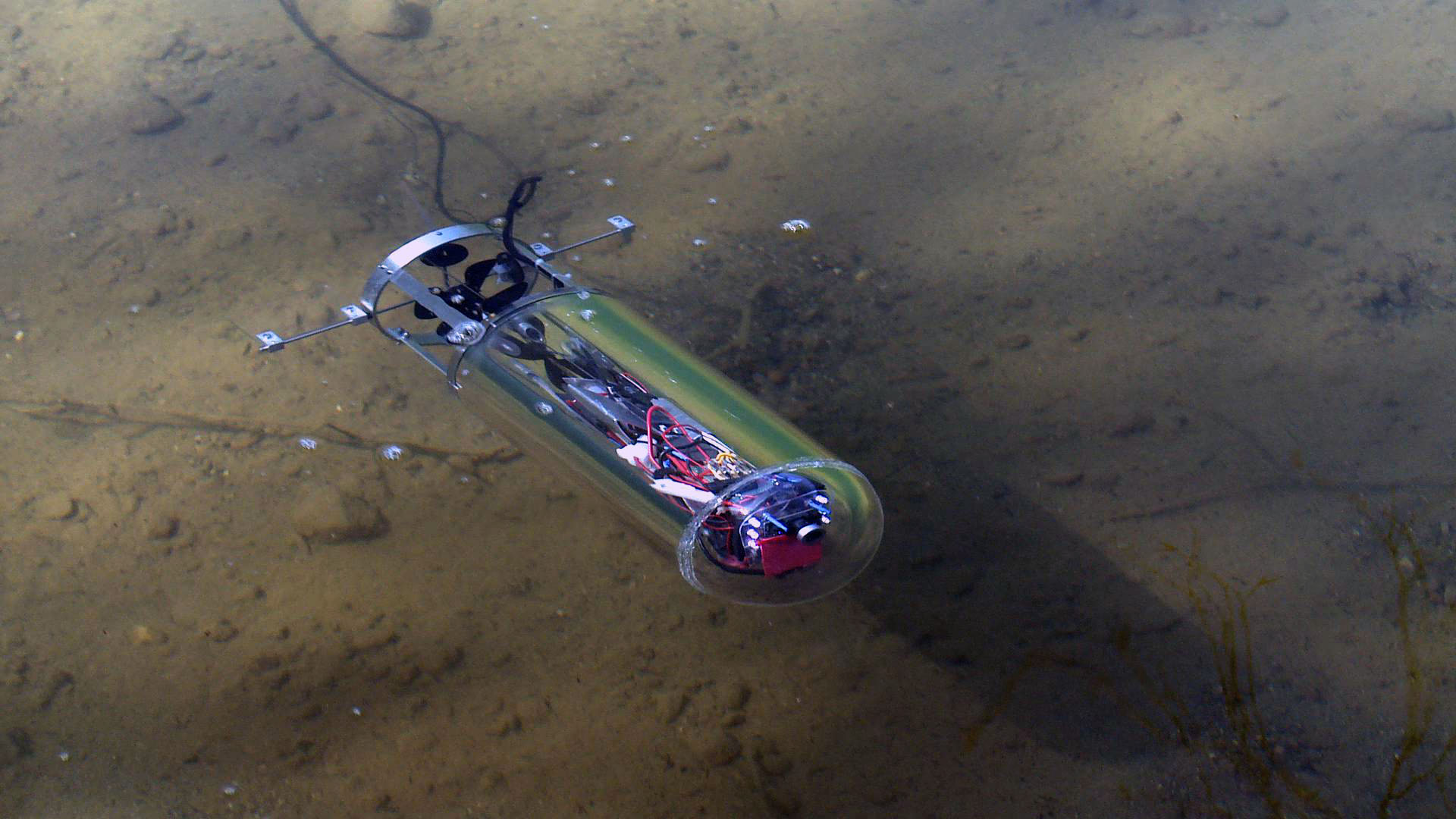
More
Mini submarine
The range of the 82 competing projects this year was wide. From cocktail robots to comparison studies of masks worn in Burkina Faso and at Urnäsch in eastern Switzerland, and UV radiation and vitamin D levels of Davos high school students.
Foundation director Stefan Horisberger said the 2014 contest reflected recent trends, becoming less elite, more diversified and attracting more women – the balance this year was 50-50. But he acknowledged it was difficult to measure the overall success objectively.
One way would be to look at its past success stories like André Kudelski, founder of the Kudelski Group, Heinrich Haller, director of Swiss National Parks, or the president of Zurich’s Federal Institute of Technology(ETHZ), Ralph Eichler, who won a competition prize in 1967 for a computer project. Next February he is due to take over as foundation president.
EPFL mechanical engineering student Pius Theiler won a national prize in 2011 which led to his entry into the 2011 “European Union Contest for Young Scientists” in Helsinki – where he came first for an innovative climbing device.
“The competition goes against commonly accepted thinking that new scientific discoveries are only possible in high-tech labs,” he told swissinfo.ch. “Projects are presented publicly by the participants, discussed and explained. This demands an ability to communicate to the wider public, something which is missing in science today.”
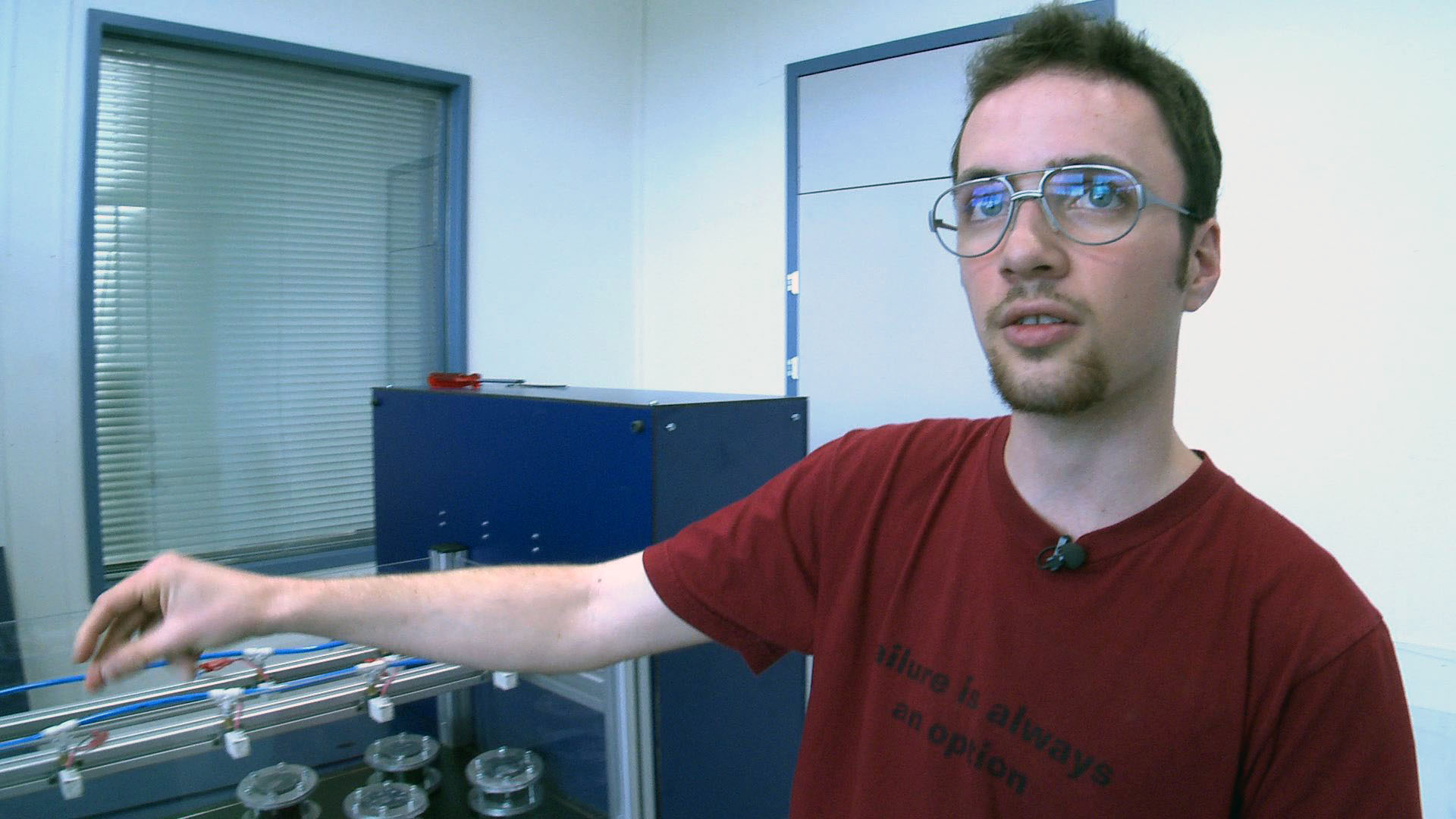
More
Water organ
Camill Oberhausser was also in shock after his ethics study into morality and sexuality won a special prize and the chance to go to the EU competition in Warsaw in September.
“I don’t think I’ll win,” the budding international lawyer told swissinfo.ch ahead of the announcement of the prizes. “The important thing about this contest is the social aspect, not the competition. You meet lots of really interesting motivated people, you can build your own network and it’s a great opportunity to learn how to present your work.”
Networking with other students and experts, who act as mentors, is an important aspect of the contest, agreed Horisberger.
“But for me what is really nice is that you get to see them as young people at the start of the contest and then when they leave, some after two years, they have become young adults assuming responsibilities,” he noted.
Horisberger said the standard of projects this year was very high and it was important to remember that none of them had gone to university yet.
“They are at high school and have received a general education, not a specialised one. So when we judge them we look at the projects in a different way, not just scientific, but innovation and creativity are also important.”
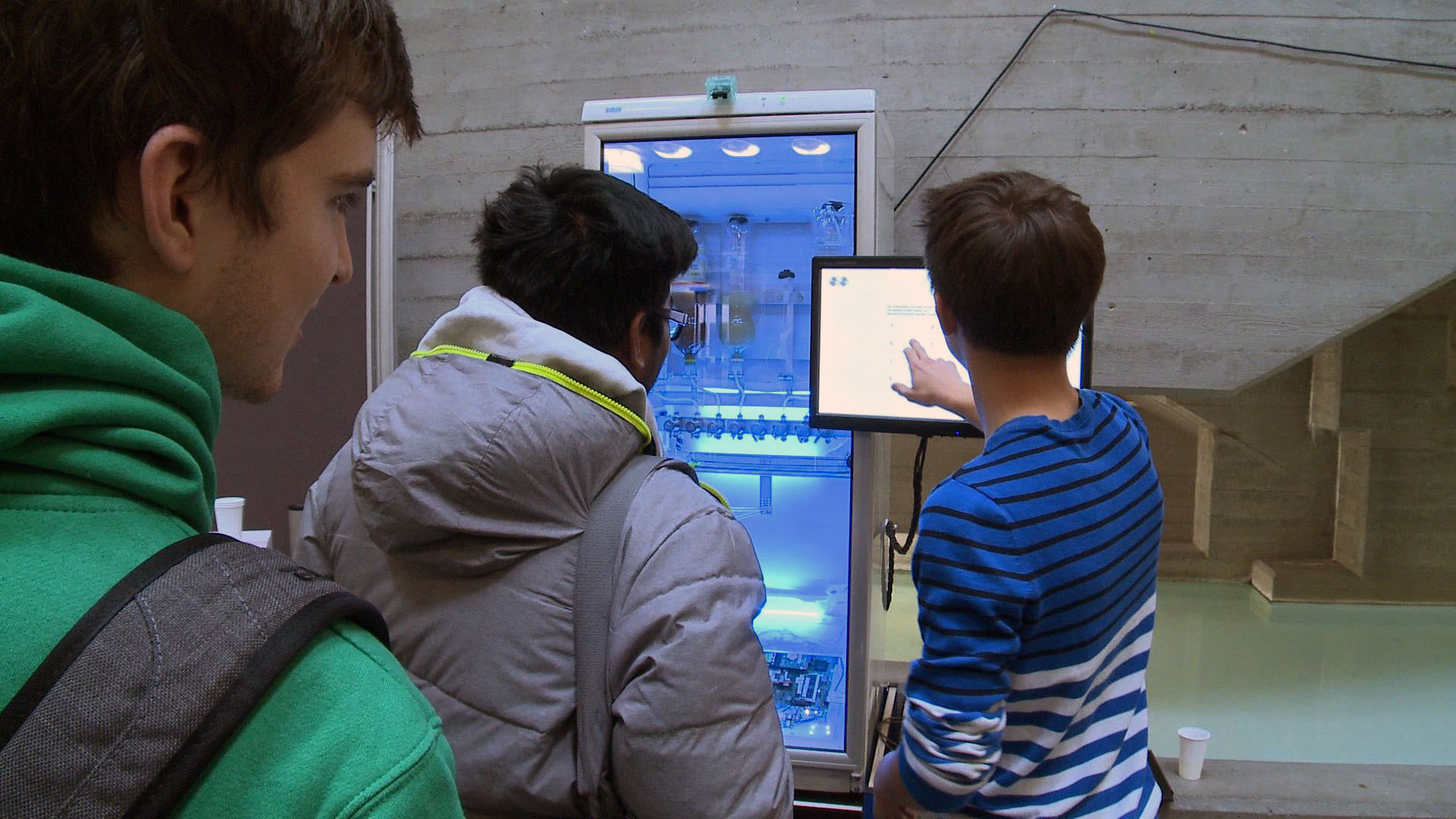
More
Cocktail robot
Switzerland regularly tops global innovation and competitiveness rankings especially thanks to its world-class universities and research networks. At secondary school level standards have improved if the 2012 Pisa (Programme for International Student Assessment) report is to be believed.
Switzerland came top among European countries in an international comparison of more than 510,000 maths skills and scored well for reading. For general science it was 18th, behind countries like Finland, Germany and Canada.
To improve this Horisberger felt science should be better promoted among the Swiss public.
“If you look at Ireland or Britain science is much more popular than in Switzerland. In the evening you have science programmes on TV. Scientists are known all over the country so kids grow up with that. This doesn’t exist in Switzerland,” he lamented.
Some 100 Swiss high school students from across Switzerland, representing 82 different projects, took part in the final of the 48th national science competition organised by Schweizer Jugend Forscht Foundation. The prize-giving ceremony and presentations were held this year at the Rolex Learning Centre at Lausanne’s Federal Institute of Technology (EFPL).
In all 38 national and international prizes were handed out to the most talented who had taken part in the competition, which was launched in 1967.
Special prizes included participation at the London International Youth Science Forum, the European Union Contest for Young Scientists in Warsaw, Poland, and the International Science and Engineering Fair (Intel ISEF 2015) in Pittsburgh, United States, among others.
The projects covered a broad range of fields, from physics, biology, chemistry, history, geography, computer science to art, architecture and culture.
A major concern, however, stems from recent anti-immigration vote on February 9 in which voters approved quotas for foreigners and agreed to rethink its bilateral relations with Europe.
The EU reacted by excluding Swiss students from the Erasmus university exchange programme this year. And Swiss universities were no longer able apply for funding within its flagship Horizon 2020 research programme.
On 6 May it was announced that the EU had decided to unblock talks on the future of Swiss cooperation in Erasmus and Horizon 2020. This was in parallel to approving a mandate for negotiations with Switzerland on institutional issues.
However, Swiss students’ future status remains unclear. No date has been set for the start of talks. And Foreign Minister Didier Burkhalter said recently that Switzerland may be reintegrated into European programmes but collaboration is not expected at the same levels as prior to the vote, particularly in terms of Swiss project leadership.
This was in the back of many people’s minds in Lausanne. As a consequence of the vote, the EU has decided Switzerland is no longer a full member of the European Union Contest for Young Scientists, said Foundation Vice President Nathalie Pichard. Over the past five years the number of young Swiss scientists winning European awards was comparable to Ireland and Germany.
Oberhausser said the issue was a hot one among high school students.
“Of course there will be a solution,” he declared. “But you cannot close the borders and do things alone. Science and innovation in Switzerland depend on the rest of the world. We have to work together. This vote just sends a bad signal.”

In compliance with the JTI standards
More: SWI swissinfo.ch certified by the Journalism Trust Initiative

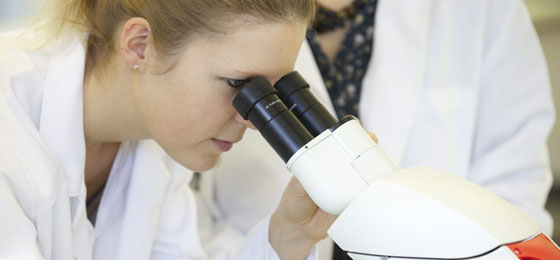
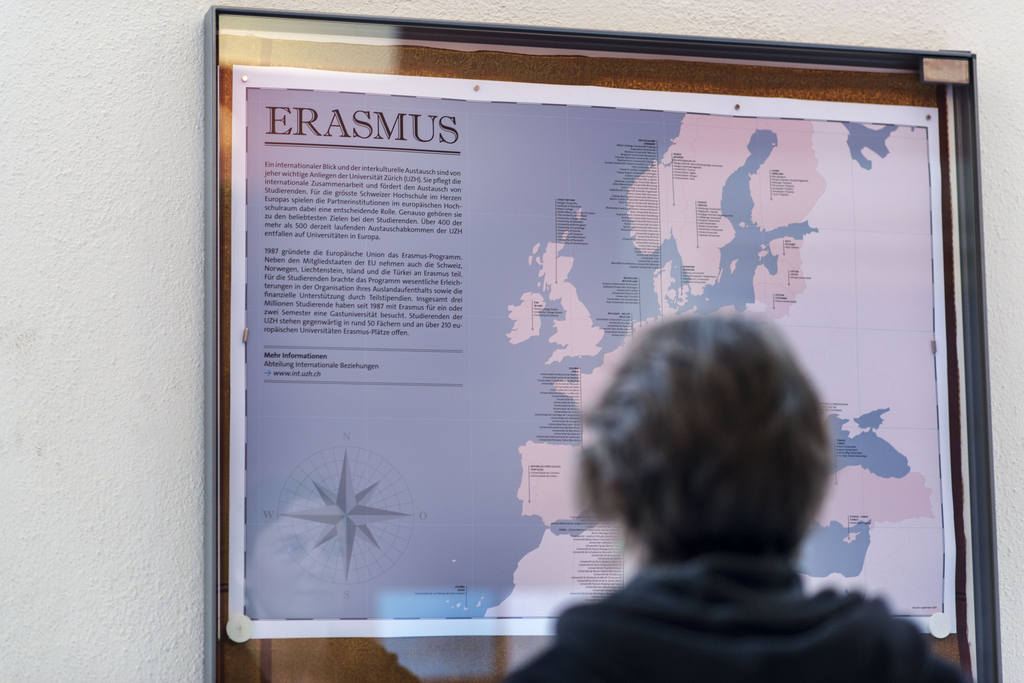

You can find an overview of ongoing debates with our journalists here. Please join us!
If you want to start a conversation about a topic raised in this article or want to report factual errors, email us at english@swissinfo.ch.